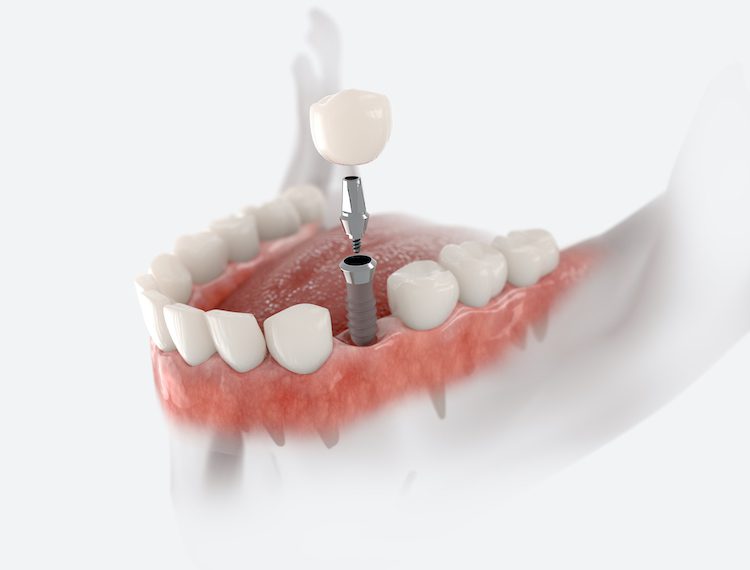Dental implants offer a reliable and permanent solution for missing teeth. They provide a stable foundation for artificial teeth, which could significantly improve both functionality and aesthetics. Many people overlook implants due to misconceptions about the procedure or cost. However, understanding their benefits and the situations in which they are most appropriate can guide your decision-making process.
The Basics of Dental Implants
Dental implants consist of titanium posts that surgeons insert into the jawbone. These posts act as artificial roots for replacement teeth. The material, titanium, is biocompatible, meaning it integrates well with bone tissue. This integration process, known as osseointegration, is crucial for the implant’s stability. Once the implant integrates, it provides a strong base to support crowns, bridges, or dentures.
The process involves several steps. Initially, the surgeon places the implant into the jawbone. This initial procedure is surgical and requires careful planning and execution. After placement, the jawbone needs time to heal around the implant. This healing period can take several months, during which the bone grows and fuses with the implant. Once healing is complete, the dentist attaches the artificial tooth or teeth. The result is often a seamless and natural-looking replacement that functions like a real tooth.
When to Consider Dental Implants
Consider dental implants when you lose one or more teeth. Missing teeth can affect your oral health, leading to issues such as bone loss and shifting of remaining teeth. They can also impact your appearance, affecting your confidence and self-esteem. Dental implants could restore your smile and prevent further oral health issues. Bone loss is a significant concern when teeth are missing. The jawbone requires stimulation from tooth roots to maintain its density. When teeth are lost, this stimulation ceases, leading to bone deterioration over time. Dental implants act as artificial roots, providing the necessary stimulation to prevent bone loss. This preservation of bone structure is one of the most compelling reasons to consider implants.
Benefits of Dental Implants
Dental implants offer numerous benefits, making them a preferred choice for tooth replacement. They are designed to look and feel like natural teeth, often providing a seamless appearance that blends with your existing teeth. Implants could also improve speech by preventing the slippage that can occur with dentures. Dentures can move around in the mouth, causing speech difficulties. In contrast, implants remain securely in place, allowing for clear and confident speech.
Additionally, implants often enhance comfort. Unlike dentures, which can irritate the gums, implants become a permanent part of your mouth. This permanence means you do not have to remove them for cleaning or sleeping, as you would with dentures. Implants also help improve oral health. Unlike bridges, which require altering adjacent teeth, implants do not affect other teeth. This preservation of natural tooth structure is advantageous for maintaining overall oral health. They also facilitate easier cleaning and maintenance compared to alternatives like bridges and dentures.
Considerations Before Getting Implants
Consider several factors before deciding on dental implants. Your overall health plays a critical role in the success of the procedure. Certain medical conditions can affect healing, such as diabetes and heart disease. These conditions may slow down the healing process or increase the risk of complications. It is crucial to discuss your medical history with your dentist. They can assess your suitability for implants and may consult with your physician if necessary.
Bone density is another important consideration. Adequate bone density is required to support the implant. If you lack sufficient bone density, a bone graft may be necessary to build up the bone before implant placement. This additional procedure can extend the treatment timeline but is essential for the implant’s success. Smoking can also impact implant success. Smokers face a higher risk of implant failure due to impaired healing and increased risk of infection. If you smoke, your dentist may advise quitting or reducing smoking to improve your chances of a successful outcome.
Aftercare and Maintenance
Proper aftercare is essential to ensure the long-term success of your dental implants. Follow your dentist’s instructions closely, especially in the days and weeks following the procedure. Good oral hygiene is crucial. Brush and floss regularly to keep your gums and implants clean. Use a soft-bristled toothbrush and non-abrasive toothpaste to avoid damaging the implants. Regular dental check-ups are also important. These visits allow your dentist to monitor the health of your implants and address any issues early.
Avoid habits that can damage implants, such as chewing hard objects or grinding your teeth. If you grind your teeth, your dentist may recommend a night guard to protect your implants. Your dentist can provide additional tips for care based on your specific needs. Following these guidelines will help ensure your implants remain healthy and functional for years to come.
Dental Implants in Atlanta, GA
At Sandy Springs Dentistry, we understand the dangers of missing teeth. If you suffer from tooth loss or need an extraction, dental implants could help. Contact us today to schedule a consultation and learn more about your restorative dentistry treatment options.

